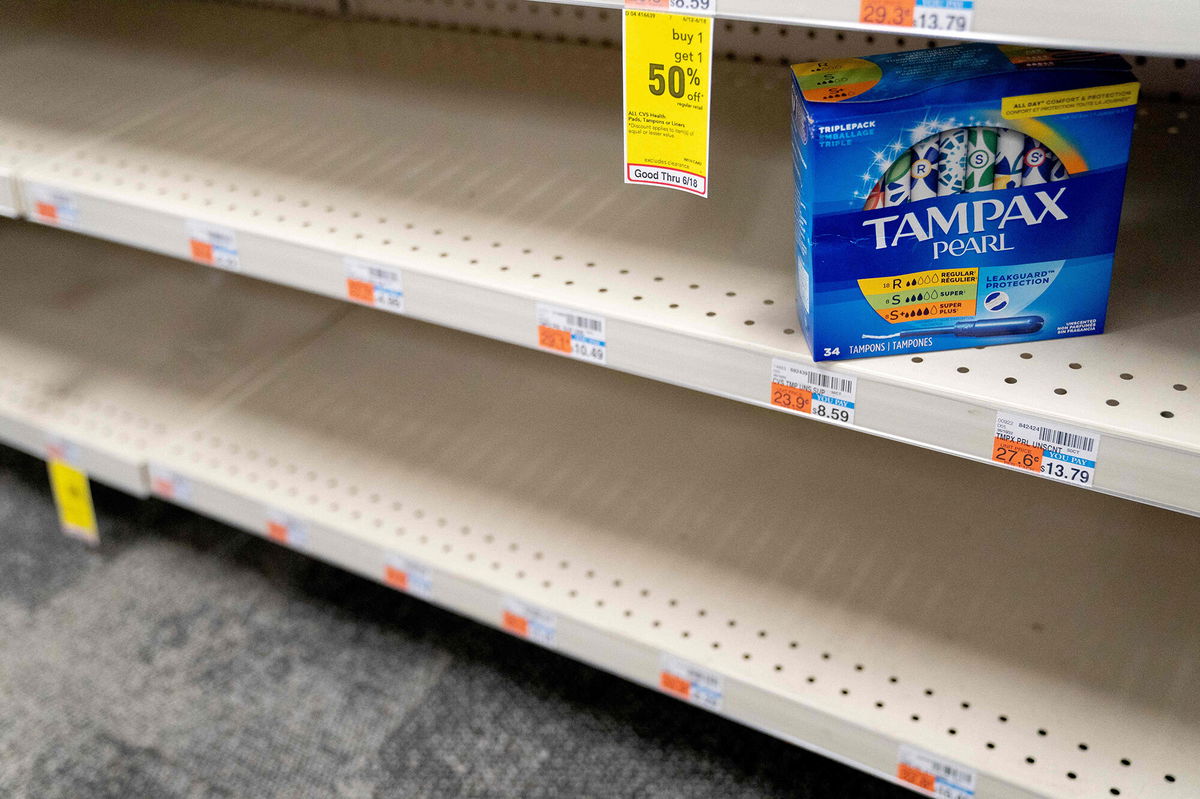Tampon shortage: Instacart says it’s struggling to fulfill orders

A box of Tampax Pearl tampons are seen on a shelf at a store in Washington
By Parija Kavilanz, CNN Business
Tampons are in short supply and the global supply chain once again is to blame for causing a shortage of a consumer necessity.
Stores and manufacturers acknowledged shortages of the product last week, confirming complaints that have been circulating on social media for months.
On Monday, on-demand grocery delivery service, Instacart, provided more evidence.
Searches for tampons rose 13% on the platform’s app last week compared the prior week. The company said the rate at which its personal shoppers were able to find tampons on store shelves to fulfill those orders dropped to 67% as of June 19, the lowest it’s been since the early weeks of the pandemic in April 2020.
As more women learn of the shortage, Instacart said it is seeing an increase in shoppers potentially looking to stock-up, with sales for tampons on its platform up 29% week over week.
“We’re beginning to see tampon turbulence show up in the Instacart app in response to the growing shortage, with purchasing behavior beginning to rival that of the beginning of the pandemic as customers adopt stock-up behavior,” Laurentia Romaniuk, Instacart’s trend expert and senior product manager, said in a statement.
Romaniuk said Instacart’s app is able to alert customers if tampons are in low supply at a particular store they order from and will suggest an alternative.
Lack of key materials
Tampon shortages appear to stem from supply constraints around key materials such as cotton and plastic, which are also used in personal protective equipment and have been in high demand from the start of the pandemic.
The war in Ukraine has further crimped supply because Russia and Ukraine are both major exporters of fertilizer, which is used to grow cotton. A drought in Texas hasn’t helped, either.
A representative for Procter & Gamble, which owns Tampax and Always brands of tampons, told CNN Business last week that the Tampax team is “producing tampons 24/7 to meet the increased demand.”
“We understand it is frustrating for consumers when they can’t find what they need,” the P&G spokesperson said in an email. “We can assure you this is a temporary situation.”
Both Walgreens and CVS said they are aware of tampon and other women’s-health product shortages in some areas and are working with their suppliers to ensure they can restock as soon as possible.
Market research firm IRI, which tracks products out-of-stock across retailers nationwide, said stores were 92.5% in stock with tampons for the week ending June 12.
“In aggregate, 92.5% is pretty good in-stock for any category these days,” KK Davey, IRI’s president of client engagement, said in a statement.
“Many categories have rationalized their assortments, and in general the unique number of items (or products) you see on the shelf has decreased over the last few years as manufacturers coped with raw material, labor, packaging and transportation challenges,” Davey said. “So, shoppers particularly those who are using specialized or niche products may not find some of their top choices on shelf at some retailers. We believe some of the headlines around tampon shortages may fall in this category.”
— CNN’s Allison Morrow contributed to this report.
The-CNN-Wire
™ & © 2022 Cable News Network, Inc., a WarnerMedia Company. All rights reserved.